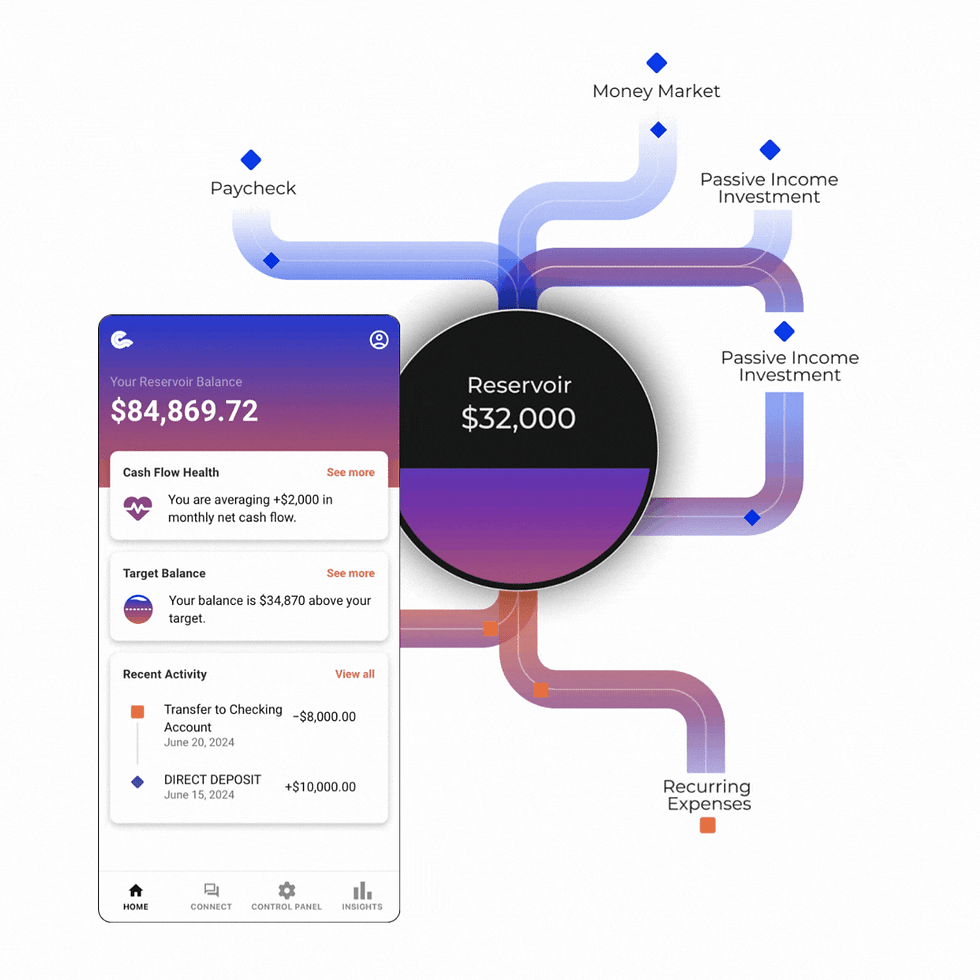How to Build a Profitable Small Business: Financial Foundation Tips Every Entrepreneur Needs
- Allison L. Reynolds, CPA

- Jun 10, 2025
- 3 min read
Updated: Jul 30, 2025

Starting a small business is exciting—but turning that idea into a sustainable, profitable venture requires more than just passion. A solid financial foundation is the bedrock of every successful business. Without it, even the most innovative products or services can falter.
Whether you're just getting started or looking to strengthen your current operations, here’s a practical guide on how to build a strong financial foundation for your small business.
1. Separate Personal and Business Finances
The first rule of business finance: never mix personal and business funds. Open a dedicated business bank account and, if needed, a business credit card. This separation:
✔ Simplifies bookkeeping
✔ Protects your personal assets
✔ Helps build business credit
✔ Improves credibility with clients, investors, and tax authorities
2. Create a Realistic Budget
A budget acts as your financial roadmap. Start with the essentials:
Fixed costs: rent, salaries, utilities
Variable costs: inventory, marketing, travel
One-time expenses: licenses, equipment
Revenue projections: based on research and/or previous sales
Review your budget monthly and adjust it as you learn more about your cash flow.

3. Establish an Emergency Fund
Just like in personal finance, having a rainy-day fund for your business can be a lifesaver. Aim to set aside 3–6 months’ worth of operating expenses. This cushion helps you navigate:
✔ Sudden dips in revenue
✔ Unexpected repairs or costs
✔ Delayed payments from clients
4. Understand and Manage Cash Flow
Many profitable businesses fail because they run out of cash. To prevent that:
✔ Track all incoming and outgoing cash
✔ Use cash flow forecasting tools
✔ Invoice promptly and follow up on late payments
✔ Negotiate favorable payment terms with suppliers
5. Choose the Right Accounting System
You don’t have to be an accountant—but you do need to understand your numbers. Choose an accounting method that suits your business (cash vs. accrual) and consider using software like QuickBooks, Xero, or Wave.
Hiring a professional accountant, even part-time, can also add tremendous value—especially during tax season.
6. Monitor Key Financial Metrics
Stay informed by tracking financial indicators such as:

Gross profit margin
Net income
Accounts receivable/payable
Inventory turnover
Break-even point
Understanding these metrics helps you make smarter decisions and spot issues before they escalate.
7. Plan for Taxes Year-Round
Don’t let taxes catch you off guard. Stay compliant by:
✔ Understanding your tax obligations (income tax, sales tax, self-employment tax, etc.)
✔ Keeping organized records of expenses and receipts
✔ Setting aside a portion of your income for quarterly payments
Work with a tax professional who can help you minimize liabilities and avoid penalties.
8. Protect Your Business
Financial stability also means risk management. Consider the following:
Business insurance (liability, property, workers’ comp)
Legal structure (LLC, S-Corp, etc.) for asset protection
Contracts and agreements to prevent legal disputes
These safeguards help shield your business from costly disruptions.
9. Build Credit Wisely

Establishing business credit opens up more financing options down the road. To build strong credit:
✔ Apply for an Employer Identification Number (EIN)
✔ Open a business credit card
✔ Make payments on time
✔ Work with vendors who report to credit bureaus
A good credit history can help you secure loans, better terms, and future growth opportunities.
10. Reinvest in Your Business
As profits come in, reinvest strategically in areas like:
Product development
Marketing and branding
Team expansion
Technology upgrades
Smart reinvestment strengthens your financial base and fuels long-term growth.
At Allison L. Reynolds, CPA PLLC, we specialize in helping small business owners like you build and maintain the financial strength needed to succeed. Whether you're launching a startup or scaling your current operations, our professional accounting services are designed to help you stay compliant, cash-positive, and strategically focused.
☆ Contact us today to schedule a consultation and see how we can help support your business success.






Comments